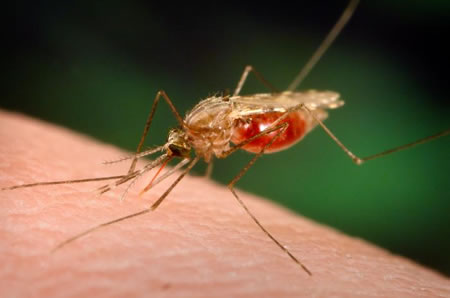
George Clooney got it, and he’s far from alone. Malaria afflicts 300 to 500 million people around the globe each year. In fact, more than three billion people live in areas at risk of malaria transmission, which is the cause of death for approximately one million individuals each year—mostly in sub-Saharan Africa. Clooney attained malaria on a humanitarian trip to Sudan and is now working to draw attention to a disease that can be treated successfully when proper medications are available.
Those considering travel to countries in South America, Africa and Asia may be well advised to learn if the area they’re visiting is one in which Malaria is prevalent. This mosquito-borne illness produces recurrent attacks of chills and fever and can result in death if left untreated.
Symptoms of malaria infection can be mild typified by flu-like symptoms such as chills, fever, headache, nausea, vomiting and diarrhea, or they can be quite severe involving organ failure, convulsions or coma. If an individual experiences a high fever while living in or after having visited a high-risk malaria region, he or she needs to see a physician immediately. The parasites that cause malaria can lie dormant for months.
Travelers can take precautions to prevent malaria by using insect repellants, covering exposed skin and sleeping under insect netting. Additionally, travelers may take anti-malarial drugs beginning at least two weeks prior to their departure for a malaria-prevalent region. The specific medication will depend on the drug-resistance patterns in the areas being visited.
The U.S. Centers for Disease Control and Prevention provides a plethora of information on malaria, prevention and treatment on its website. a page is dedicated for travelers looking for information on whether malaria is prevalent at the destination they will be visiting. The Malaria Map Application contains a detailed world map highlighting the prevalence of malaria in countries around the world. The CDC has also produced a brochure titled “Preventing Malaria in Travelers.”
The World Health Organization offers additional information on Malaria, including insight into diagnosis and treatment, risks to travelers and interactive map detailing Malaria risk in specific countries.
The Malaria Foundation International is a non-profit organization dedicated to the fight against malaria. The foundation supports education, awareness, training and research into malaria and offers more information on this disease on its website.